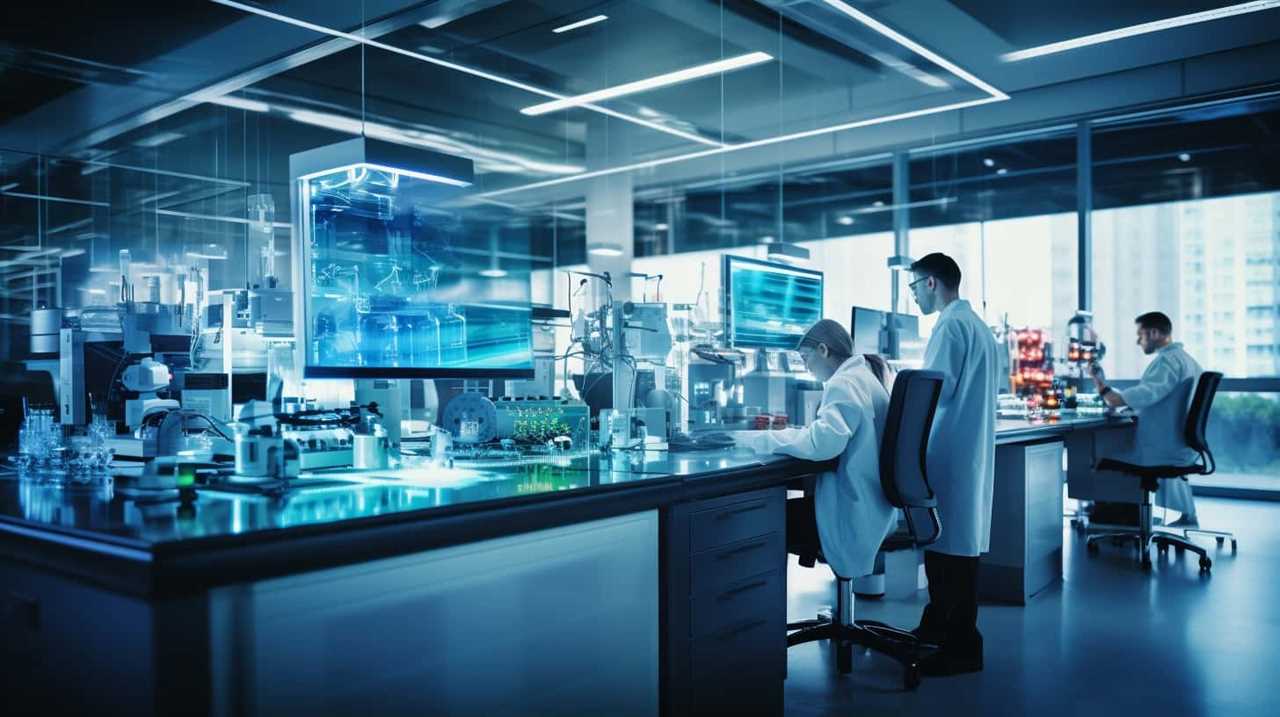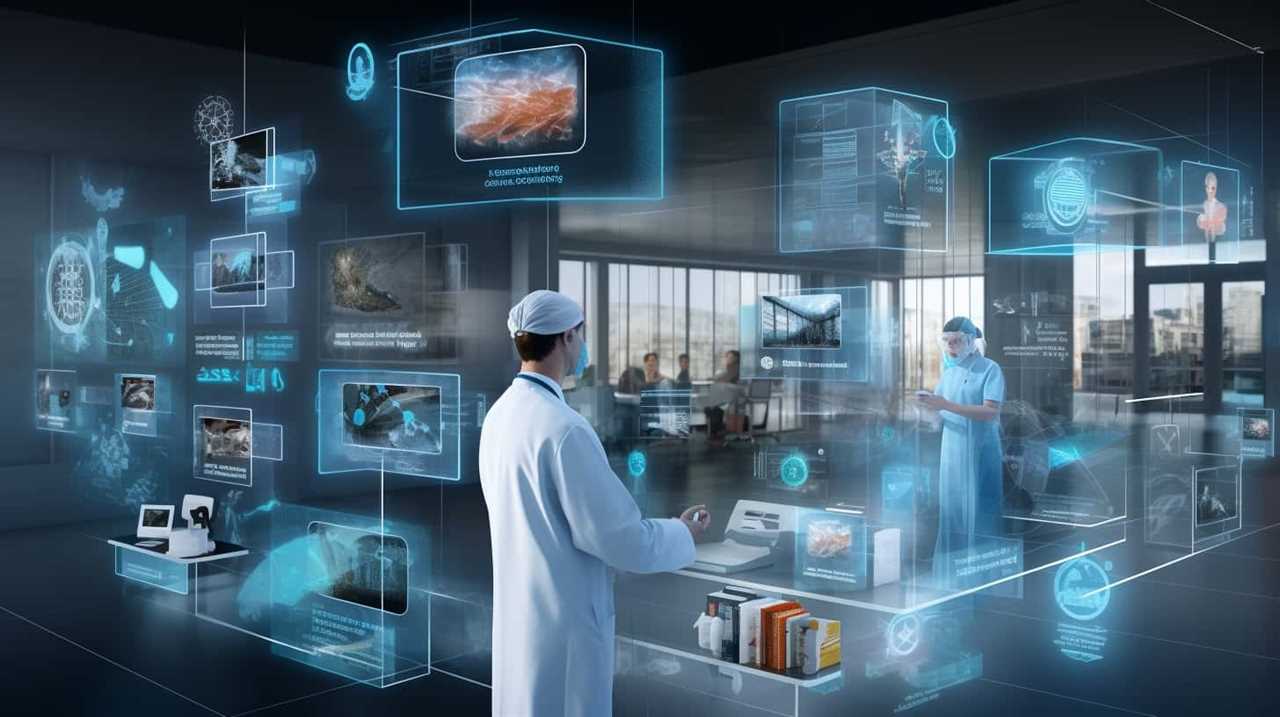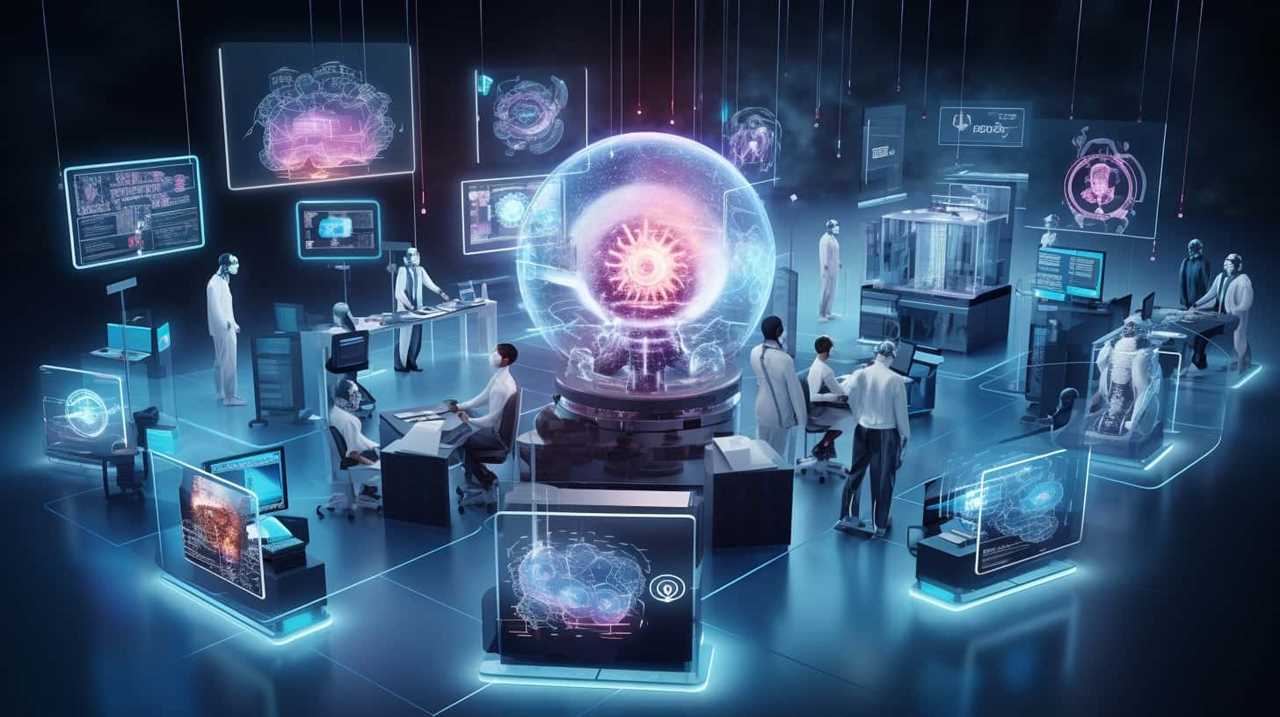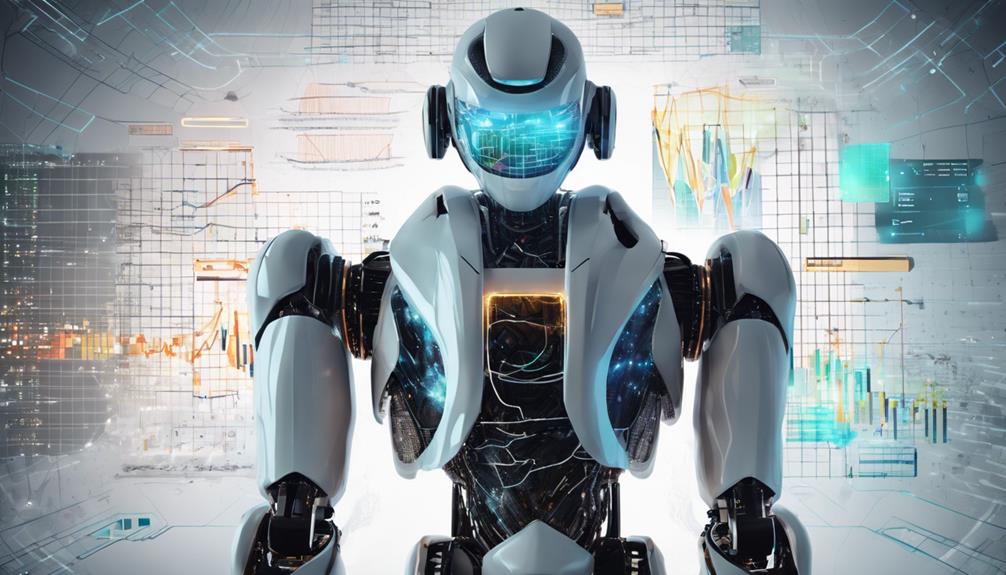Are you ready to see the manufacturing industry reach new heights? Brace yourself, as we are going to delve into the world of artificial intelligence and its incredible impact on productivity.
With AI integration, we can reduce costs, enhance efficiency, and streamline operations like never before. Get ready to witness improved product quality and accelerated production processes.
It’s time to embrace the power of AI and revolutionize the manufacturing industry.
Let’s explore how AI boosts productivity!

Key Takeaways
- AI integration reduces costs and improves efficiency in the manufacturing industry through operations optimization and minimizing expenses.
- AI technology streamlines operations by optimizing workflows, reducing downtime, and implementing predictive maintenance systems.
- AI implementation improves product quality by automating processes, detecting defects with precision, and reducing rework and waste.
- AI systems accelerate production processes through automation, optimization, and the use of AI-powered robots and algorithms.
Cost Reduction Through AI Integration
One of the key benefits of AI integration in the manufacturing industry is our ability to achieve cost reduction through its implementation.
By utilizing AI technologies such as real-time monitoring and predictive maintenance, manufacturers can optimize their operations and minimize expenses.
Real-time monitoring allows us to gather and analyze data from various sensors and devices in real-time, enabling us to identify inefficiencies and bottlenecks in the production process. This leads to better resource allocation and improved productivity, ultimately reducing costs.
Additionally, predictive maintenance powered by AI algorithms can anticipate equipment failures and schedule maintenance activities proactively. This prevents unexpected downtime and reduces the need for costly emergency repairs.

Enhanced Efficiency and Accuracy With AI Solutions
How can AI solutions enhance efficiency and accuracy in the manufacturing industry? AI technology offers several automation benefits that can significantly improve productivity and yield in manufacturing processes.
Here are five ways AI solutions enhance efficiency and accuracy:
- Predictive maintenance: AI algorithms can analyze data from sensors and equipment to predict maintenance needs, reducing unplanned downtime and improving overall equipment effectiveness.
- Real-time quality control: AI-powered vision systems can inspect products in real-time, identifying defects and ensuring consistent quality.
- Intelligent inventory management: AI algorithms can optimize inventory levels by analyzing data on demand patterns, supply chain disruptions, and production schedules.
- Process optimization: AI can analyze vast amounts of data to identify bottlenecks, optimize production schedules, and improve overall process efficiency.
- Enhanced decision-making: AI systems can provide real-time insights and recommendations, enabling faster and more informed decision-making.
With these capabilities, AI solutions streamline operations and pave the way for the subsequent section on ‘streamlining operations with AI technology’.
Streamlining Operations With AI Technology
Continuing from the previous subtopic on enhanced efficiency and accuracy with AI solutions, we can streamline operations in the manufacturing industry by leveraging AI technology.

By optimizing workflows and reducing downtime, AI can significantly improve productivity and cost-effectiveness. AI algorithms can analyze vast amounts of data in real-time, identifying bottlenecks and inefficiencies in the manufacturing process. This enables manufacturers to make data-driven decisions and implement proactive measures to enhance operational efficiency.
AI-powered predictive maintenance systems can also help prevent equipment failures by detecting signs of potential issues before they occur, reducing downtime and increasing overall productivity.
Additionally, AI-powered robotics and automation systems can streamline repetitive tasks, freeing up human resources for more complex and value-added activities.
Improving Product Quality Through AI Implementation
To further enhance the manufacturing industry’s productivity, we can leverage AI technology to improve product quality. By automating inspections and reducing defects, AI implementation offers several benefits:

- Enhanced accuracy: AI systems can detect even the smallest defects with precision, eliminating the possibility of human error.
- Increased efficiency: AI algorithms can process vast amounts of data quickly, allowing for faster and more thorough inspections.
- Cost savings: By reducing defects, AI helps minimize the need for rework and waste, resulting in significant cost savings for manufacturers.
- Continuous improvement: AI algorithms can learn from past inspections and make adjustments in real-time, leading to continuous quality improvement.
- Customer satisfaction: By delivering products with higher quality, manufacturers can enhance customer satisfaction and build stronger relationships.
Accelerating Production Processes With AI Systems
We can accelerate production processes in the manufacturing industry by implementing AI systems. By automating assembly and optimizing logistics, AI can significantly enhance the speed and efficiency of production.
AI-powered robots can handle repetitive and mundane tasks on the assembly line, allowing human workers to focus on more complex and value-added activities. These robots can work continuously without fatigue, leading to increased productivity and reduced cycle times.
Furthermore, AI algorithms can analyze and optimize logistics operations, such as inventory management and supply chain coordination, to ensure that materials and components are available when needed, minimizing delays and bottlenecks.
Frequently Asked Questions
How Does AI Integration in the Manufacturing Industry Affect Job Security for Human Workers?
AI integration in the manufacturing industry affects job security for human workers. The impact of AI on job displacement is a crucial concern. We must examine how AI adoption affects employment and develop strategies to mitigate any negative consequences.

Can AI Solutions in Manufacturing Lead to Potential Ethical Concerns?
Ethical implications and privacy concerns arise when implementing AI solutions in manufacturing. We must address potential risks and establish guidelines to ensure the responsible and secure use of AI technologies in this industry.
Are There Any Specific Industries Within Manufacturing That Benefit More From AI Implementation Than Others?
There are specific industries within manufacturing that benefit more from AI implementation than others. Automation benefits and AI in the supply chain have the potential to significantly boost productivity in these industries.
What Are the Potential Challenges or Barriers to Adopting AI Technology in the Manufacturing Industry?
Challenges and barriers to adopting AI technology in the manufacturing industry include concerns about data security, lack of technical expertise, and high upfront costs. Overcoming these obstacles is crucial for reaping the benefits of AI in boosting productivity.
How Does AI Implementation Impact the Overall SustAInability and Environmental Footprint of the Manufacturing Industry?
Implementing AI in manufacturing has a significant sustainability impact. It reduces the industry’s environmental footprint by optimizing energy consumption, minimizing waste, and improving resource allocation. This transformation enhances the overall efficiency and eco-friendliness of manufacturing processes.

Conclusion
In conclusion, the integration of AI in the manufacturing industry has proven to be a game-changer. With cost reduction, enhanced efficiency, streamlined operations, improved product quality, and accelerated production processes, AI has revolutionized the way manufacturers operate.
However, this is just the beginning. As AI continues to evolve and advance, its potential to further enhance productivity and drive innovation in the manufacturing industry is boundless. The future holds endless possibilities, and the impact of AI on the manufacturing sector is sure to remain suspenseful and transformative.









